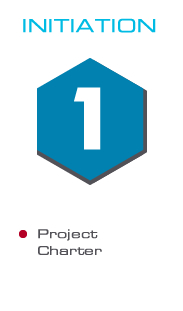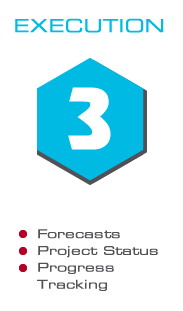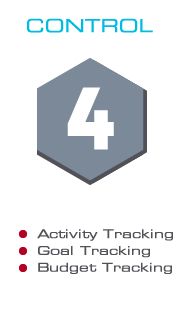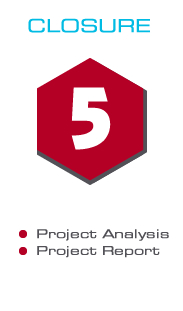At CCSP Global, our project management services are designed to ensure the seamless execution of your business projects from start to finish. We manage all aspects of the project lifecycle, from initiation and planning to execution, control, and closure. Our team of experienced project managers uses industry best practices and proven methodologies to oversee tasks, resources, timelines, and budgets, ensuring that your project stays on track and aligns with your strategic goals. Whether you’re launching a new product, upgrading your IT infrastructure, or handling complex multi-phase projects, CCSP Global provides the expertise needed to deliver successful outcomes on time and within budget.
Our project management services are tailored to meet the unique needs of each client, allowing for flexibility and customization based on the specific requirements of your business. We emphasize clear communication and collaboration, working closely with stakeholders to identify potential risks, resolve challenges, and keep the project moving forward efficiently. By leveraging advanced project management tools and technologies, CCSP Global provides real-time insights and reporting, giving you full transparency into the progress of your projects. With our hands-on approach and commitment to excellence, we ensure that your projects are executed with precision and deliver the desired results.






The initiation phase is the foundation of any project. It begins by defining the project at a high level, including its purpose, goals, and objectives. Key stakeholders are identified, and their needs and expectations are discussed. This phase often involves conducting a feasibility study to evaluate whether the project is realistic and beneficial to the organization. It also includes identifying project constraints such as budget, resources, and time. The project manager creates a project charter, a document that formally authorizes the project and defines its scope, objectives, and high-level deliverables. This charter serves as the guiding document for all future project phases. The initiation phase ensures that there is a clear understanding of the project’s purpose and alignment with the organization’s strategic goals before moving forward.

The planning phase is where detailed strategies for accomplishing the project’s objectives are developed. The project manager creates a comprehensive project plan that covers several key elements: scope, schedule, cost, quality, resources, communication, and risk. A well-defined project scope ensures that all stakeholders have a mutual understanding of the project’s boundaries and deliverables. A work breakdown structure (WBS) is created to break the project into smaller, manageable tasks. Timeframes and milestones are established using tools like Gantt charts or timelines, and resource allocation is planned, ensuring that personnel, equipment, and materials are available when needed. Additionally, risk management plans are developed to identify potential risks and define mitigation strategies. The project budget is also finalized, estimating the cost of each phase and resource. This phase is crucial for creating a roadmap that guides the team through the project while setting realistic expectations for stakeholders.

During the execution phase, the project plan is implemented, and the project team works to produce the deliverables. This is often the most time-consuming phase, as it involves coordinating people, managing resources, and ensuring tasks are completed on schedule. The project manager plays a critical role in facilitating communication among team members and stakeholders, ensuring that everyone has the information they need to execute their tasks effectively. The project manager also oversees procurement activities, manages vendor relationships, and ensures that resources are available as planned. Team leadership is essential here, as the project manager must keep the team motivated and focused, address any issues that arise, and maintain productivity. The execution phase is also when any changes or adjustments to the original plan are managed, ensuring they are approved and documented appropriately.

The control phase occurs simultaneously with execution and focuses on monitoring and measuring project performance to ensure that it stays on track. The project manager uses performance metrics to track progress against the original project plan, comparing actual progress to planned timelines, budgets, and deliverables. Tools such as earned value management (EVM), key performance indicators (KPIs), and regular status reports are used to assess the project’s health. If there are any deviations from the plan—such as cost overruns, schedule delays, or scope creep—the project manager intervenes by making adjustments and communicating with stakeholders to realign the project. Risk management also continues during this phase, as risks may evolve or new risks may emerge. Effective control ensures that the project remains within its defined scope, schedule, and budget, allowing the project to achieve its objectives.

The closure phase signifies the formal completion of the project. It involves finalizing all activities, delivering the project outputs, and confirming that the project’s goals have been met. During this phase, the project manager ensures that all project deliverables are accepted by the client or stakeholders, and all contracts and financial obligations are settled. The team conducts a post-project review, often referred to as a “lessons learned” session, to evaluate what went well, what could have been improved, and how future projects could benefit from this knowledge. All project documentation, including reports, logs, and approvals, is compiled and archived for future reference. The project manager also ensures that any products or services produced by the project are smoothly transitioned into the organization’s operational processes. Finally, project resources are released, and the project team is disbanded or reassigned. The closure phase ensures that the project is officially completed, and stakeholders can fully benefit from its outcomes.
When you partner with CCSP Global for your project management needs, you gain access to a team of experts dedicated to delivering exceptional results. We manage every phase of the project lifecycle with precision, ensuring that your project stays on track, within scope, and on budget. Our project managers are highly skilled in coordinating resources, overseeing timelines, and managing risks, allowing your business to focus on strategic goals while we handle the complexities of project execution. Whether it’s a small internal initiative or a large-scale operation, CCSP Global ensures a seamless, well-organized process from start to finish.
At CCSP Global, we understand that every project is unique, which is why we offer tailored project management solutions to fit your business’s specific needs. Our team works closely with stakeholders to develop a customized approach that ensures alignment with your company’s objectives. We use advanced project management tools to provide real-time updates, clear reporting, and transparent communication, keeping you informed and engaged throughout the process. With our proactive risk management strategies and ability to adapt to changes, CCSP Global ensures that your project remains agile and resilient, even in the face of unexpected challenges.
Choosing CCSP Global means choosing a project management partner that is committed to your success. Our focus is on delivering not just projects, but tangible results that drive business growth and operational efficiency. With our expertise in managing cross-functional teams, complex workflows, and tight deadlines, we ensure that your projects are completed on time and deliver maximum value. Let CCSP Global handle the intricacies of project management, so you can focus on what matters most—moving your business forward.

